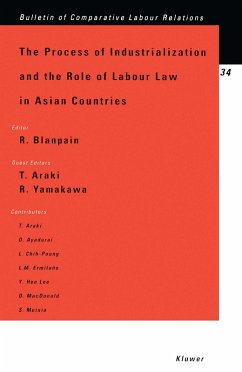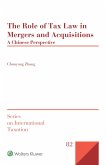The role of state or the function of labour law during industrialization in Asian countries is of utmost importance when examining how Asian labour laws differ from European or American labour law models and whether or not any common characteristics exist in Asian labour law.The seven national reports (Australia, China, Japan, Korea, Malaysia, the Philippines and Taiwan) included in this volume provide an overview of the regulation of union organization, collective bargaining and industrial disputes. These reports also analyze the role of government in industrial relations in the course of economic development. In regulations on formation of labour unions, some countries, such as Japan, have the least government intervention whereas other countries, for example Korea and Taiwan, have experienced more direct government control through imposition of certain forms of labour unions or registration requirements and procedures. The same applies to regulations on collective bargaining and industrial disputes. For instance, in Korea, Taiwan and Malaysia violation of collective agreements is not only sanctioned by civil liability but is also criminally punished. A review of the national reports reveals that while diversity in labour laws exists in the Asian countries represented, the significant role of government in labour relations is widely recognized. Through various modes of government there is commitment to the industrial relations ranging from direct intervention to indirect, soft, intervention.Whether the government's significant role in industrial relations in Asian countries is a transitional phenomenom which takes place during economic development and maturity of democracy, or Asian labour law is heading for a new labour law model which differs from the western model should be further examined. The national papers in this volume provide fundamental information on current labour laws in Asian countries and on comparable characteristics in western labour law models.
Dieser Download kann aus rechtlichen Gründen nur mit Rechnungsadresse in A, B, BG, CY, CZ, D, DK, EW, E, FIN, F, GR, HR, H, IRL, I, LT, L, LR, M, NL, PL, P, R, S, SLO, SK ausgeliefert werden.









